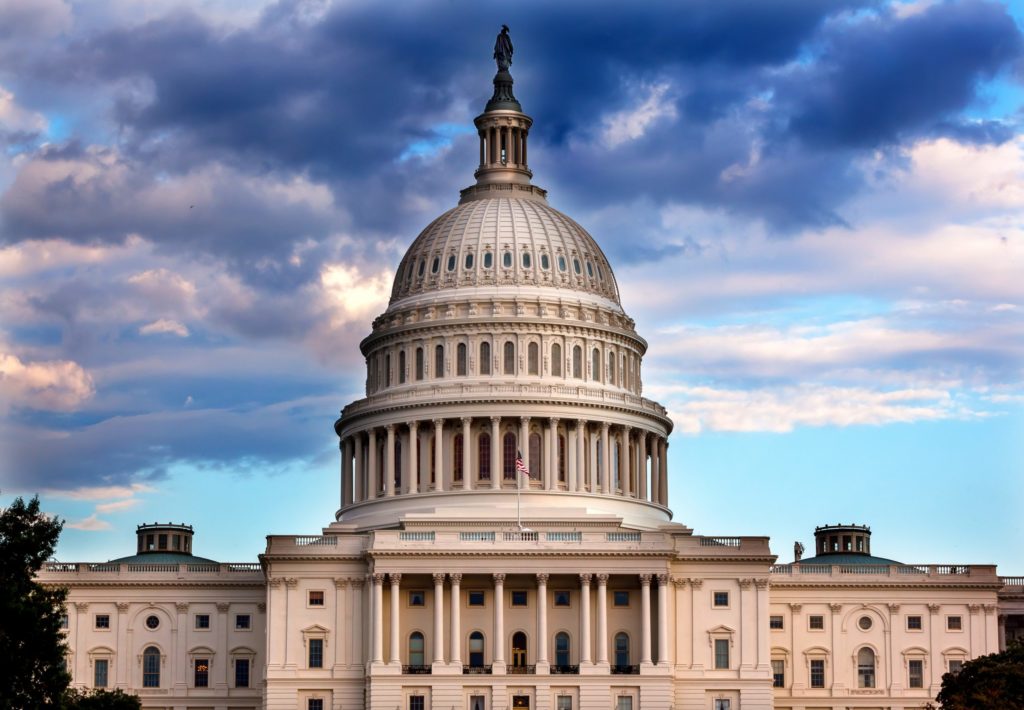In the Global Quantum Race, China Is Closing the Gap
In recent weeks, China claims to have overtaken the United States in one of the most heavily contested areas in emerging technology: quantum computing. Chinese researchers say they have achieved “quantum supremacy” as one of their nascent machines can solve a problem in an hour that would take the world’s fastest supercomputer eight years to crack.
It is still too soon to tell whether China has surpassed the United States in the quantum computing arms race. But U.S. policymakers should take note because this technology—though still in the theoretical stages—is poised to change the world as we know it.
State of Play
“Quantum” has quickly become a tech-sector buzzword, as researchers and companies from Silicon Valley to Beijing claw for bragging rights to the latest breakthrough in this emerging technology space.
Big Tech claims to be on the path to building these super–super computers by leveraging physics in a way that allows machines to solve previously unsolvable problems. While quantum computers are still in the early stages of development, scientists predict such technology will be able to help combat climate change or rapidly develop vaccines and remedies for diseases.
There are technical challenges at play, however, that leave us years away from a reliable, high-performance quantum computer capable of performing these tasks, though practical uses are already being developed. Near-term applications range from using autonomous vehicles as suppliers to improving investor decision making.
Whichever country leads the world in quantum computing by the end of this decade will have a major power advantage, from the hypothetical ability to break encryption to the ability to supercharge artificial intelligence and military technologies. In fact, the U.S. National Institute of Standards and Technology is already pushing for quantum-resistant cryptography, in anticipation of quantum’s likely ability to crack public-key encryption and digital signatures.
America’s Dwindling Lead
The United States currently has a leg up over China in quantum computing patents, and, much like China, American researchers already achieved a “quantum supremacy” milestone in 2019. Additionally, the U.S. innovation ecosystem has a free-market advantage over Beijing, allowing for more open collaboration, competition and investment. Meanwhile, American tech giants, such as IBM, Google and Microsoft, have managed to stay at the forefront of this technology by throwing money into research and development (R&D).
Yet these advantages could prove fleeting.
Analysts believe China’s sudden progress is a sign that the country is pulling ahead. The Chinese Communist Party has ramped up spending on emerging tech, into the hundreds of billions of dollars annually, while the U.S. government has struggled to keep pace, funding quantum research at far lower levels.
Although U.S. private sector investment has made up the difference, industry insiders worry about a “quantum winter,” a period in which Western enthusiasm and investment wane before the technology becomes profitable, allowing China to take the lead by way of its heavily subsidized industrial policy.
Google’s top quantum scientist, Hartmut Neven, echoed those worries and called for more federal investment: “What would really secure American leadership is if the [U.S.] government would use its enormous purchasing power to reward early risk takers.”
The Way Forward: Getting Washington in the Game
A spate of bills are being negotiated in the U.S. Senate and House to maintain America’s edge by increasing spending on emerging tech R&D, although it will likely be years before those dollars have any real impact on the burgeoning quantum industry.
This is where the Biden administration can step in.
Rather than wait for Congress to act, the White House could direct U.S. departments and agencies to prioritize new quantum-computing initiatives using existing R&D funds, a move that would help protect U.S. national security and economic security interests by ensuring America stays at the forefront of the quantum race.
For starters, the executive branch could create a “quantum sandbox” or “research cloud” to buy finite time on the private sector’s most advanced machines. This would have the dual benefit of giving U.S. government agencies much-needed access to quantum computing processing power—allowing them to prepare for the quantum future—while also stimulating competition within the burgeoning industry.
The administration could also reprogram existing federal funds to create one or more “grand challenges,” calling on private-sector companies to compete and solve complex problems that only quantum computers can tackle, especially in areas like defense planning, autonomous transportation and cybersecurity.
Other agencies—from the Department of Defense to the Department of Homeland Security—could do the same, tasking their R&D shops to work with the quantum-computing industry to create applications that would help address real-world national security challenges.
These are simple, relatively low-cost, high-impact actions that could galvanize America’s quantum research efforts—and they might even be achievable this year. Our adversaries are already prioritizing quantum computing. It is time for the White House to pay attention—and do the same.









